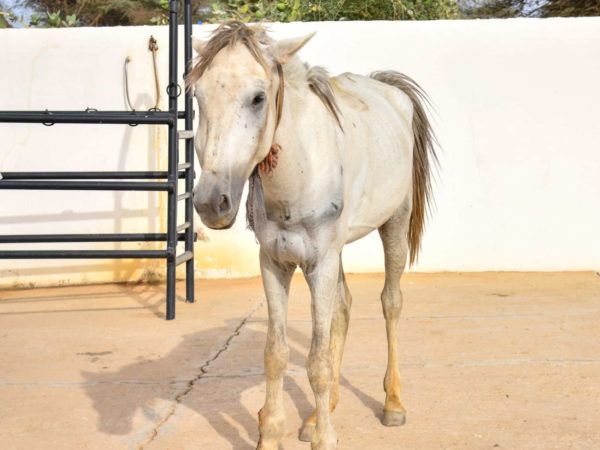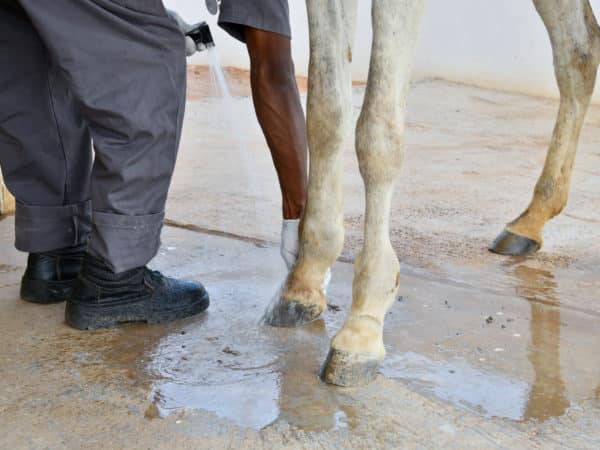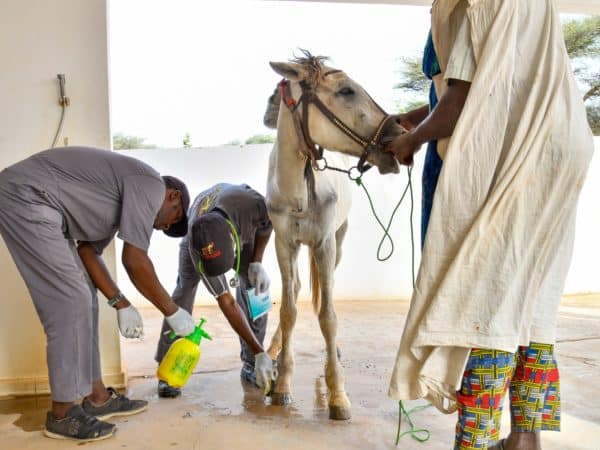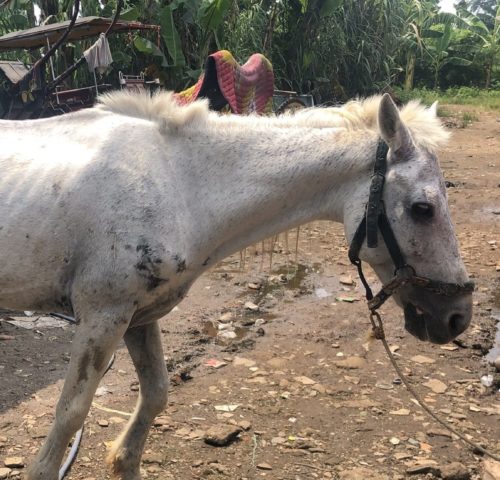
Every day, thousands of working animals endure the unbearable pain of arthritis. Arthritis is a common disease for humans and animals alike – but it is particularly prevalent in working animals.
The repetitive nature of their work, which often involves carrying heavy loads for long hours on rough terrain, can cause massive strain on their joints and lead to the early onset of the disease. Sadly, once arthritis has developed, there is no cure.
But with your support, we can provide early diagnosis, treatment and careful management of the condition. We can also educate owners to help prevent or slow its advance, and ease the pain that working animals face.
Will you please donate today to help working animals suffering form arthritis?

Cheikh’s story
Cheikh works tirelessly for his owner, Mahmoud, transporting construction materials around Douboungué, a region of Mauritania.
Every day, the six-year-old horse hauls a heavy cart in intense 40°C heat. Without the faithful horse’s help, Mahmoud would have no way of making an income and supporting his family. Life is extremely tough for both Cheikh and Mahmoud.
One day, Mahmoud noticed Cheikh was having trouble walking more than even a few steps and showed significant discomfort when pulling his cart. After inspecting his horse’s legs and finding a wound on Cheikh’s right front limb, the concerned owner went to SPANA for help.
At our centre in Boghé, our expert vets gave Cheikh a full examination, first checking the leg wound and then feeling his joints for any abnormalities.
As they gently examined Cheikh’s legs and flexed the fetlock joints, the horse visibly flinched and tried to pull his front right leg away in discomfort.
The affected joint was swollen and tender, so Cheikh was given an anti-inflammatory injection to relieve soreness and reduce inflammation. They treated the leg wound by gently removing the dead tissue and cleaning the area with antiseptic solution to prevent infection.

After taking an X-ray of Cheikh’s legs and reviewing the horse’s medical history, the team diagnosed Cheikh with arthritis.
Thankfully, the X-ray showed that Cheikh’s arthritis was still in the early stages. This meant that, with the right management, Cheikh could lead a comfortable life and the disease could be slowed down.
Before Cheikh was discharged, the vets prescribed a course of anti-inflammatories to ease his discomfort. Mahmoud was advised to let Cheikh rest for two weeks before gradually reintroducing him back to work, with reduced hours and a decreased load. The team also stressed the importance of good farriery and adequate equipment so as not to overwhelm Cheikh’s joints. Mahmoud listened carefully to the vets’ advice and promised to introduce more breaks during Cheikh’s work and reduce his workload.
He said: ‘Thank you, SPANA, for helping Cheikh. The vets always give our animals the best treatment possible.’
Fortunately, SPANA vets were able to intervene before Cheikh’s arthritis worsened. But for every horse like him, there are a thousand more arthritic working animals who are tormented daily by their painfully inflamed joints and desperately need expert care.


